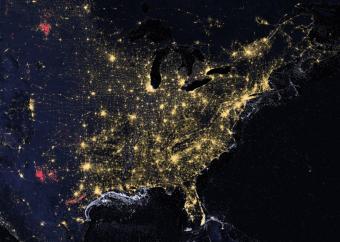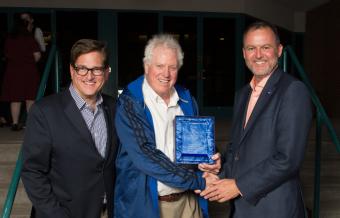Earth Observation Group wins Galileo Award from International Dark-Sky Association

The Earth Observation Group at Colorado School of Mines has been honored with the 2019 Galileo Award from the International Dark-Sky Association.
The award is given in recognition of outstanding achievements in research or academic work on light pollution over a multiple-year period.

Earth Observation Group Director Chris Elvidge and Senior Research Associate Kimberly Baugh have been producing satellite images of Earth at night for more than two decades. The images have been a critical component of many scientific analyses – including “The World Atlas of the Artificial Night Sky Brightness” sky glow maps – and also provide valuable insights on gas flaring and volcanic activity, illegal fishing, power outages and electrification, and geomagnetism.
Formerly of NOAA, the Earth Observation Group joined the Payne Institute for Public Policy at Mines in 2018.
Elvidge, Baugh and colleagues were honored during the International Dark-Sky Association 2019 Annual General meeting on Nov. 8 in Tucson, Arizona.
The International Dark-Sky Association is the recognized authority on light pollution and is the leading organization combating light pollution worldwide.




